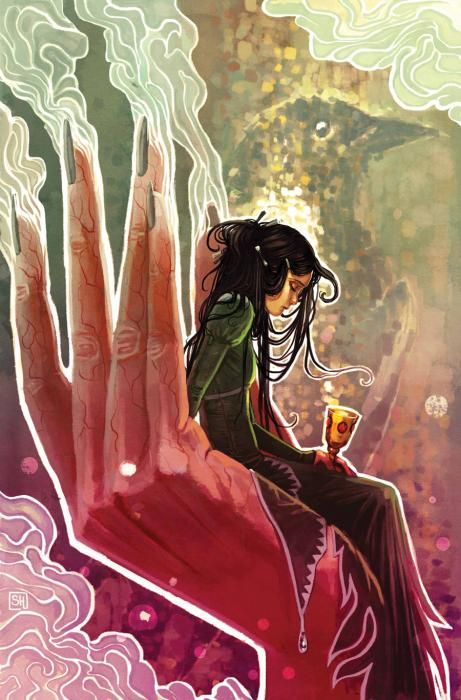If "Journey into Mystery" #641 proves anything, it's that Kieron Gillen knows few things hurt quite like a story. Some stories entertain or thrill, others inspire, but the best stories -- the ones you remember -- make you care. When your heart's on fire, they pick the worst possible moment to stamp it out.
Which brings us to the events of this issue. Notionally, we're seeing the final part of Manchester Gods, an Otherworld arc in which Kid Loki finds himself plunged into a metaphysical representation of Marxist dialectic, tasked with influencing the outcome. Which he duly does with the usual trickster-god spin. Really, it's the climax of the issue that people will talk about because we've hit the series' big turning point. By the final page, a much-loved character has been removed from the equation and the series changes as a result.
At first glance, the arc as a whole feels a little truncated, glossing over at least one apparently major plot strand and speeding towards resolution so that it can spend the rest of the time on a more character-centric epilogue. However, the moment Gillen's been working towards since day one is realised as an intricate crescendo of the book's plot, themes and imagery. The funny thing is it's a development never anything but inevitable, and yet we, as readers (and maybe even the characters as well), read on in the hope that there might yet be a way out of the bind. But as it turns out, there isn't.
It's moments like this where having an artist like Richard Elson on board really helps a comic. Elson isn't an artist that tries to steal the writer's share of the focus and he executes a story with clarity and commitment. Although he wasn't there at the very start, recent issues have shown Elson to be an essential piece of the "Journey into Mystery" puzzle and his presence on this arc ensures beats are met when and where they should be.
While as a world-weary twenty-something I've lived through worse emotional turmoil than this, there are people out there who are experiencing this in the raw, visceral way some of us felt for the likes of Optimus Prime, or Aerith, or "Buffy the Vampire Slayer's" Tara -- and really, that's a good thing.
Because few things hurt quite like a story can. Like a vaccine for despair. Like training wheels for heartbreak. It may be upsetting, but you come out of it better equipped to deal with reality. In a medium where character deaths are deployed as readily as punctuation, it's a privilege indeed to read a story that understands how to execute a death story so it matters to the audience.

